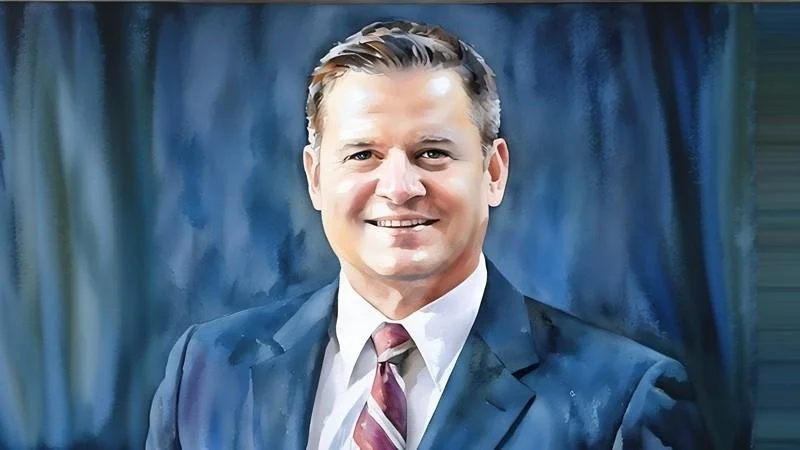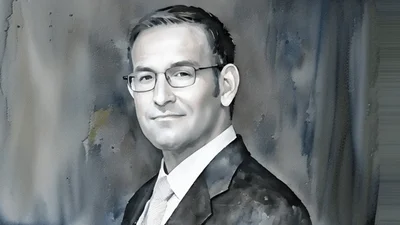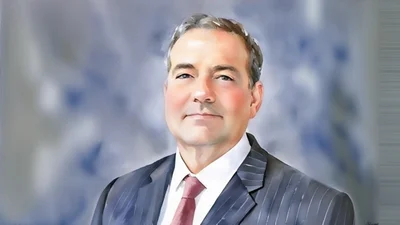American arguments over speech and technology are sharpening. Europe moves to laws that regulate platforms and content while officials in the United States consider whether to follow. Patrick Hedger, director of policy at NetChoice, warns that importing Europe’s approach invites censorship, chills innovation, and leaves users and startups worse off.
Hedger grew up in Florida and now lives in Virginia. His interest in regulation started with his father who ran a small manufacturing business. “His biggest concern is never his competitors,” he says. “It is the three- and four-letter agencies.”
Hedger frames the moment around the First Amendment. “If you don’t have the First Amendment, all the other ones go out the window,” he says. “It is the guarantor of our rights and our ability to redress the government and share ideas in a pluralistic society.” He sees a cultural drift that treats “speech as violence” and punishes it as such. “That manifests in Europe through the Digital Services Act and in the United Kingdom through the Online Safety Act,” he says. “These bills sound great—who doesn’t want to be safe online—but the devil is in the details,” and “people get arrested for what would be considered free speech here.”
The commulitive effects, according to him, hit users and communities. “Platforms face rules that make them say, ‘we don’t want the hypothetical liability of user speech,’” he says. “You see age-gating, you have to upload an ID to listen to music, and websites devoted to benign things like biking or hiking shut down because third-party posts are too big a risk.” The result is “a chilling effect,” including fear of linking legal identities to anonymous accounts.
Protecting kids online should not mean identity dragnets, he says. “People rush to the worst-case solutions instead of the solutions we know work. Empower law enforcement to go after bad guys online. Put online-safety education in schools. Show families how to use parental controls.” He calls out unfulfilled government homework. “In 2008, a bill passed where the Department of Justice was supposed to study, invest in, and report to Congress on making the internet safer,” he says. “The Government Accountability Office found they basically haven't done it for years. Instead of layering new regulations, do the things already on the books.”
Innovation, in Hedger’s view, disciplines tech markets faster than antitrust can. “It is ironic that Google faces a search-monopoly case while a huge chunk of Americans shift to using AI chatbots for search,” he says. “Innovation is a more effective, more rapid check on market power.” He is concerned that sprawling federal rules or “50 different state AI bills” will freeze market evolution. “Startups don’t have armies of lawyers to navigate thousands of pages of potential regulations,” he says. “When you say you want more competition by regulating competition, you lock in the incumbents.”
Hedger contrasts Europe’s “permission first” mindset with America’s tradition of launching and fixing problems as they emerge. “Tell me who the European Google is,” he says. “Who is the European Amazon or Meta? They don’t exist because of pre-regulation.” He says ridesharing doesn’t ask taxi commissions for permission, and if it does, it dies. “Where Uber and Lyft operate, DUI and fatal accidents drop. Technology saves lives. Traditional cabs even innovate—now you can hail and pay with an app.”
Data centers, according to him, bring the debate down to dirt, steel, and watts. “These facilities run 24/7 because your hospital records, your photos, your videos all live there,” he says. “Concentrating storage and processing achieves energy and cost efficiencies, and upgrades to fiber and transmission benefit the community.” He rejects claims that data centers automatically spike power bills. “Over half of global internet traffic flows through Northern Virginia, and electricity prices here remain competitive,” he says. “Data centers absorb fixed grid costs and create high-skill jobs, plus positive spillovers when firms co-locate to cut latency.”
Policy triage, he says, starts with cleanup. “The first and best use of AI is to put it on the Code of Federal Regulations and state codes. Find overlap, duplication, and conflict, and simplify.”








